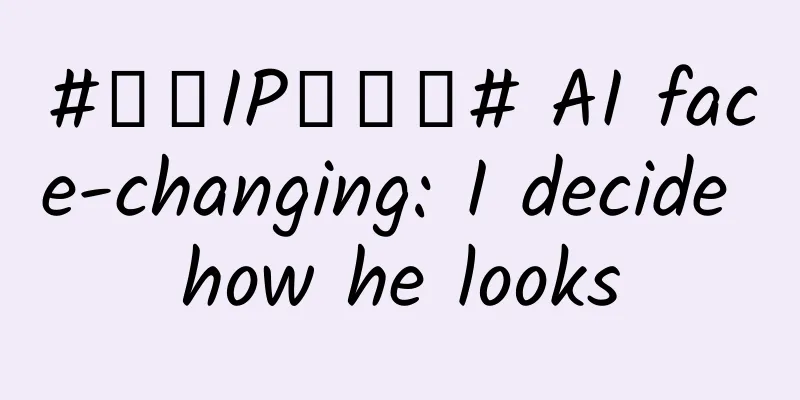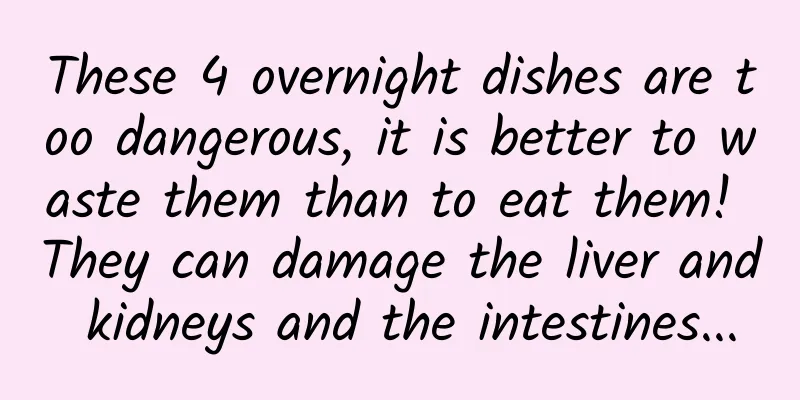The trend of "quitting sugar" is rising again! Can quitting sugar help fight aging? What kind of sugar should we quit?

|
Review expert: Wang Xuejiang, professor at Capital Medical University Recently, there has been a trend of "quitting sugar" on social media, with people posting their photos before and after quitting sugar for dozens or hundreds of days, and exclaiming that "quitting sugar really works." So, can quitting sugar help prevent aging and make people younger? What kind of sugar is quitting sugar? What is "glycation reaction"? The full name of glycation is "glycosylation reaction", which refers to the process of sugar (such as glucose, lactose or sucrose, etc.) in the blood combining with protein. It is a normal and necessary chemical reaction in the human body. Glycation reaction occurs all the time in the human body. There are two types of glycation reactions in the human body. The first is the "good reaction": enzymatic glycation reaction involving enzymes. Sugar and protein form glycoproteins with the help of enzymes. Glycoprotein is an important "good thing" and its main functions include cell recognition, cell differentiation and maturation, immune function, cell motility and adhesion, metabolic regulation, etc. The second is the "bad reaction": non-enzymatic glycation reaction without enzyme participation. Excessive sugar and protein directly generate advanced glycation end products (AGEs), which will indeed accelerate aging if accumulated excessively. Our skin is full of collagen and elastin, which are also proteins. After being glycated to produce AGEs, the elastin loses its elasticity and the collagen loses its fullness. If glycation occurs in the epidermis and stratum corneum of the skin, the moisturizing ability will decrease; if glycation occurs in the dermis of the skin, the skin will easily turn yellow and become loose. Therefore, the so-called anti-sugar should be to resist the bad glycation reaction product - AGEs. Will consuming sugar aggravate the "glycation reaction"? How much is the relationship between sugar intake and "glycation reaction"? Some experts say that glycation is a tissue chemical reaction that occurs at the microscopic level, and sugar intake does not necessarily accelerate the glycation reaction process. On the contrary, consuming a large amount of ultra-processed foods may increase the level of advanced glycation end-products (AGEs) in the body. Experts say that healthy people with normal metabolism usually do not accumulate excessive AGEs in their bodies, so there is no need for healthy people to deliberately resist glycation. However, excessive intake of sugar will indeed cause excessive secretion of sebaceous glands, leading to acne. What sugar are you quitting when you “quit sugar”? First of all, sugar is an essential nutrient for human health, so there is no need to be afraid of it. What we need is to control sugar rather than quit sugar. According to the World Health Organization's recommendation, the sugar intake of adults and children should be controlled below 10% of total energy, which is equivalent to no more than 50 grams of sugar per day. What does this mean? Every day, we drink a 500ml bottle of cola and we will consume 52.5 grams of sugar. If we are not careful, we will consume too much sugar. Therefore, controlling sugar is more important, especially reducing the intake of free sugars such as white sugar, honey and syrup. This is because free sugars are more easily absorbed by the human body, making it more likely to cause hyperglycemia and induce vascular diseases. The World Health Organization divides sugars into free sugars and endogenous sugars. Free sugars are monosaccharides and disaccharides added to foods by manufacturers, cooks or consumers, as well as sugars naturally present in honey, syrups and fruit juices. Endogenous sugars are sugars found in fruits and vegetables that are enclosed in a plant cell wall and are digested more slowly, taking longer to enter the bloodstream than free sugars. There is no evidence that endogenous sugars are harmful to health. A survey shows that the main sources of sugar intake for Chinese residents are white sugar, brown sugar and rock sugar used in cooking. So if you want to control sugar intake, you can start from here. Try to reduce the amount of sugar when cooking; when eating out, choose lighter meals to better control your sugar intake. |
<<: Can you find "crystal" around Chengdu? Experts: It's actually calcite
Recommend
Is the oral irrigator useful? Is it just a waste of money?
As the saying goes, "Toothache is not a dise...
Is it a rumor that mugwort can cure stomach problems?
Mugwort is a relatively common plant, and it is a...
The efficacy and function of new Litsea cubeba
New Litsea cubeba is a traditional Chinese medici...
Sound really can travel through a vacuum! It's time to rewrite your physics textbook
If a friend tells you that sound can propagate in...
How much meat is in the "starch sausage" that costs 2 yuan on the street? The answer is guaranteed to surprise you!
Who would have thought that the starch sausages s...
The efficacy and function of Baixiaodan
What effects does Baixiaodan have, and who is sui...
The efficacy and function of broad bean pods
Broad bean pod husk is a medicinal material. If w...
The efficacy and function of Tiankui
Speaking of Tiankui, I believe many friends know ...
Tinnitus: Taking Chinese medicine is effective
Tinnitus is the result of different pathological ...
Why can pigeons return to their homes no matter where they fly?
Audit expert: Zhao Liangyu Associate Professor, S...
In-depth analysis of "Peak Burst": What does the active Indian Ocean plate mean?
The safety of people all over the world is protec...
Is it better to take Shenling Baizhu San before or after meals?
The health of the stomach and intestines is relat...
Li Ziqi returns, bringing "lacquerware" to the fore! What is the charm of this intangible cultural heritage?
Recently, the well-known internet celebrity "...
The efficacy and function of Shixiantao
After thousands of years of sedimentation and acc...
On average, a primordial black hole flies past the solar system every ten years.
Written by Gou Lijun Black holes are commonplace ...









